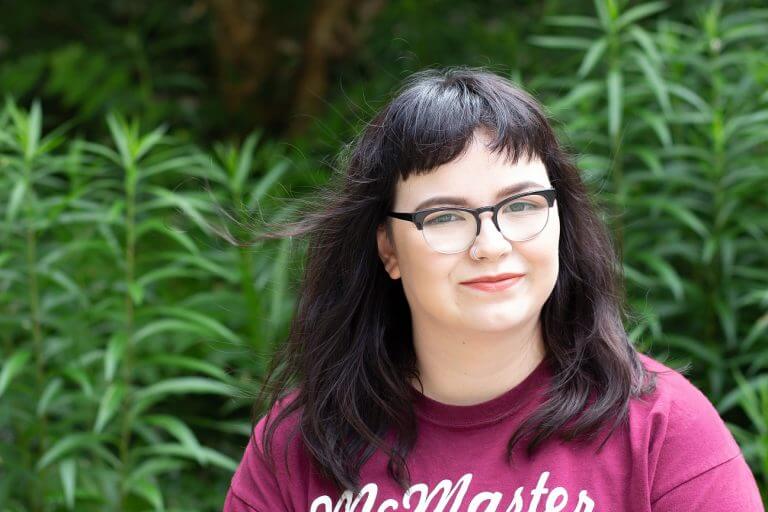By: Tory Dockree, Tabatha May, and Emily Meilleur-Rivers
Maybe you read the title of today’s post and thought, “I don’t want to think about procrastination right now.” Sometimes it feels like addressing procrastination will somehow make it worse even though addressing it can actually make it less daunting. This post will address common feelings associated with procrastination and give you some tools to beat it. You’re definitely not alone on this one. We’ve all struggled with procrastination and we still do sometimes. We have, however, gotten much better at managing procrastination and we hope we can help you do the same.
We are very prone to convincing ourselves that we will be more prepared to start work at a later date, so we often put it off. At the core of these thoughts is the fear that starting an assignment is simply too overwhelming a task. For this reason, we’ve found it really helpful to acknowledge what is specifically worrying us about our work, and then specifically address this aspect instead of ignoring the whole task. This is why we suggest starting with some reflection to get to the root of your procrastination.
Why do we procrastinate?
[…] aversive tasks lead to anxiety and worry, and […] task avoidance is a strategy to avoid this negative mood.
(Sirois and Pychyl, 2013, p. 116)
We procrastinate not only because a task itself is daunting, but because we believe that the task will bring on feelings of stress, worry, or boredom and we want a way out of this.
Now what? Name what worries you about your work! Do you not know where to start? Is there an overwhelming amount of work to be done? When you are aware of what you need to do and how you feel about it, you will be more prepared to address your procrastination.
We believe that we will be different tomorrow; but in doing so, we prioritize our current mood over the consequences of our inaction for our future self.
(Sirois and Pychyl, 2013, p. 116)
If you know that procrastination is often more about your feelings or mood and less about your ability to manage time, you can address the root of the problem. This means that instead of over-scheduling while still being stressed about your work, you can probe deeper about what has you stressed in the first place and then address it!
Now what? Avoid perfectionism! Know that starting your work does not mean being perfect the first time around. Give yourself the space to start small, make messy drafts, and not judge yourself. I would say that we are almost always more likely to do more work than we thought we would once we let ourselves start working.
Procrastination is the self-regulatory failure of not exerting the self-control necessary for task engagement.
(Sirois and Pychyl, 2013, p. 116)
When we procrastinate, we are giving into the impulse to avoid our work. It is understandable that we want to escape the pressures of our work, but we still need to build up our ability to start things even when it is easier in the moment to avoid it.
Now what? Practice self-control! When you know what your work entails and you know that you are worried about it, there is still the task of starting. With time and diligence you will find ways to work through the stress.
What can we do about it?
We know that this might turn some of you off right away, but bear with us for a second. When we first heard about mindfulness, our first thought was that it couldn’t actually be helpful to just acknowledge our thoughts and feelings without judging them or trying to change them. We thought it sounded a bit condescending because they’re already our thoughts—of course we acknowledge them! The important piece here is that in order to beat procrastination, you need to address both your time management and mood management. When you are mindful of what you need to do and how you feel about it, you will set yourself up to have more control over your work than procrastination does.
“Starting to study” or “starting your essay” are, understandably, scary things to ask of yourself. If you can break these tasks down, you might find that you don’t feel like you have to put them off quite as much! We make small promises to ourselves like “today we will think about our essays for 30 minutes and try to come up with a narrowed topic, but we can develop our theses tomorrow.” This takes the pressure off and gives us a specific task to work on in a specific time frame. We find that we are much more likely to start our work if we break things down in this way. With your deadlines in mind, try to give yourself the time to approach your work in chunks so that you do not continue to feel the burden of an entire project all in one session.
This might sound like an obvious one, but we swear blocking off our time actually made us more likely to do work. It helped us to see value in time that we would have otherwise wasted in favour of procrastinating and allowed us to take more breaks closer to deadlines instead of working way too much in a really short period of time.
Avoiding procrastination is never easy, but it’s important. Nobody actually writes better or studies harder the night before a deadline, they simply compromise their well-being by not sleeping. There are many tools that can be implemented in order to avoid procrastination like scheduling your time and breaking your work up into smaller chunks. We know that procrastination will probably be one of the harder academic challenges that you will face university, it hit us hard as well. As long as you stay mindful of this and challenge yourself to do better, you can be successful!
About Tory, Tabatha and Emily

Tory
I’m going into my third year of Arts & Science with a combination in Philosophy.

Tabatha
I’m going into my fourth year of Social Psychology with a minor in Sociology.

Emily
I just finished my undergrad in English and Cultural Studies with a Minor in Women’s Studies. In September, I am sticking around at Mac to start my Master’s in Cultural Studies and Critical Theory.